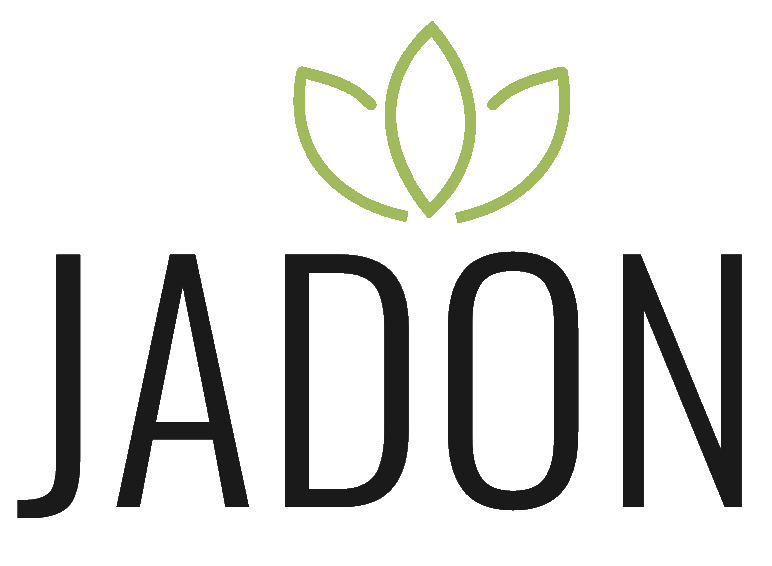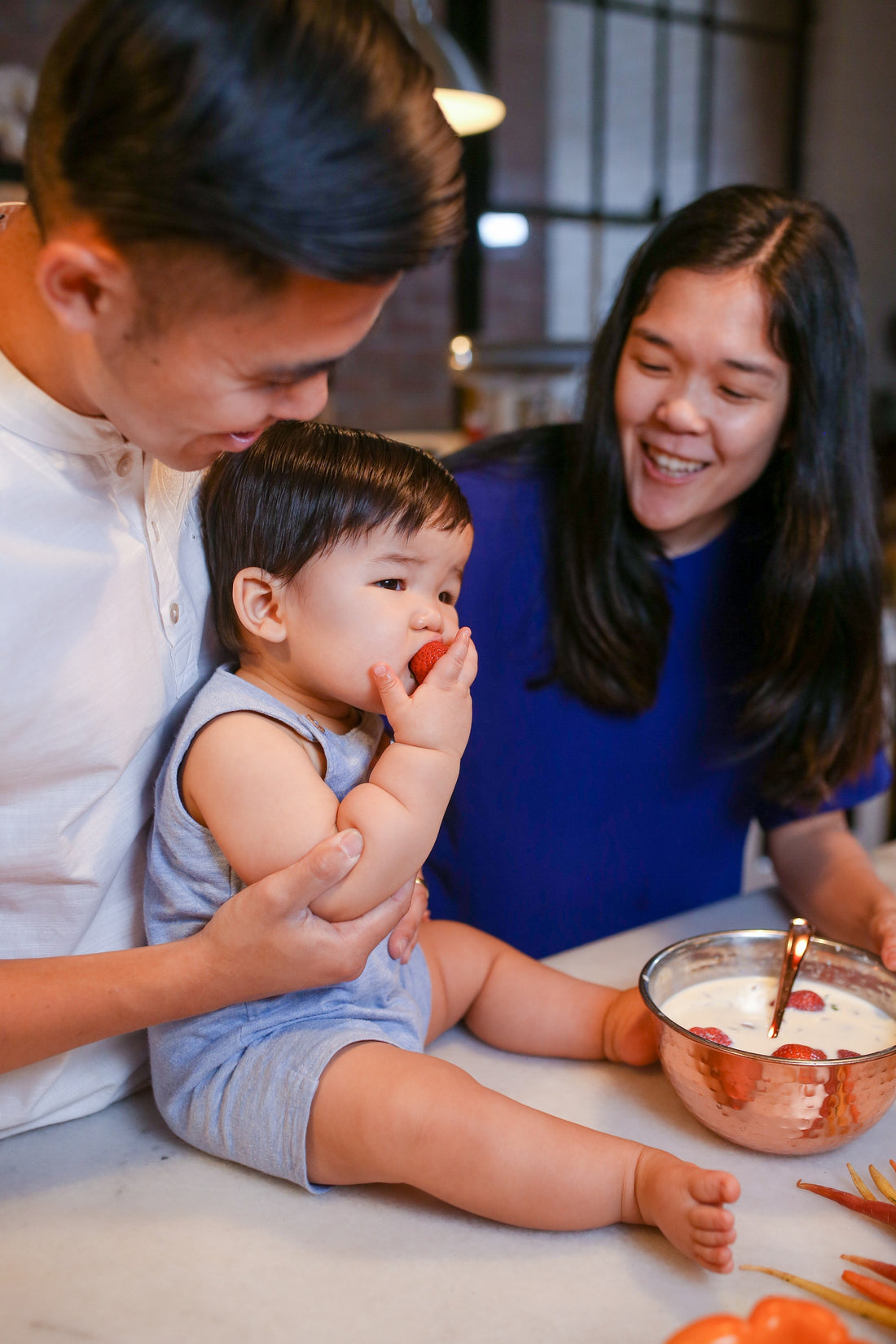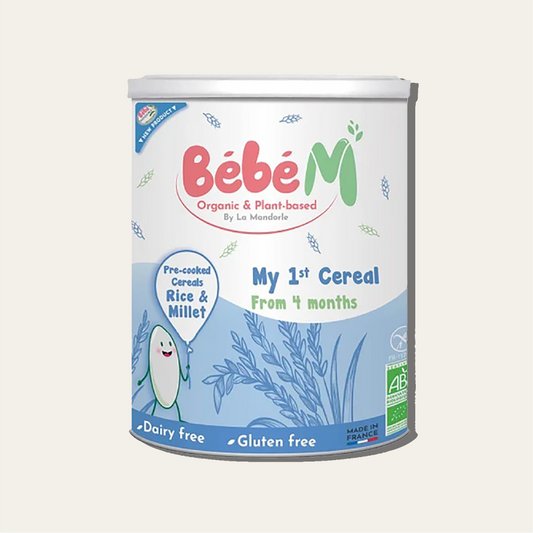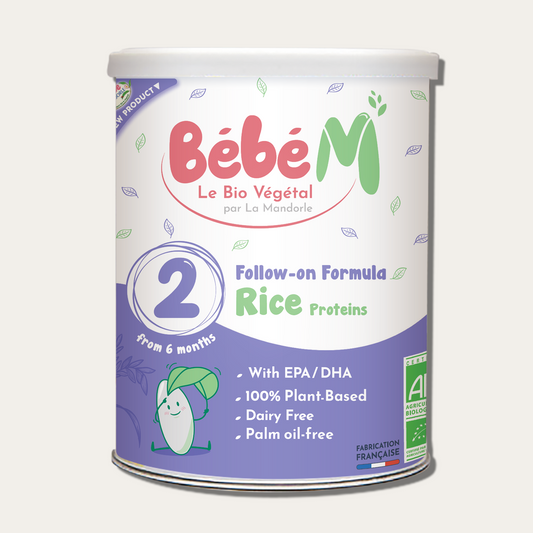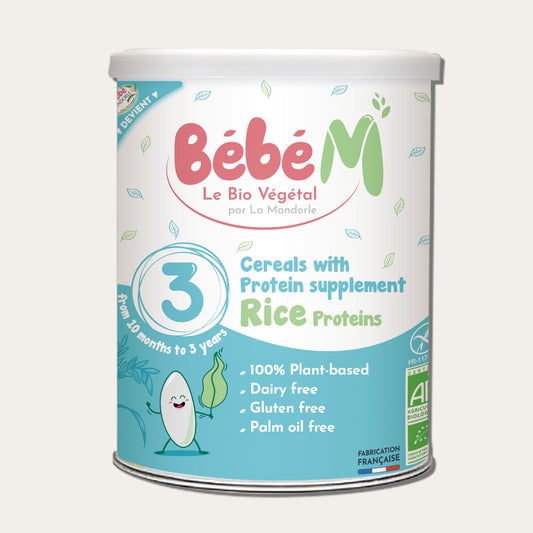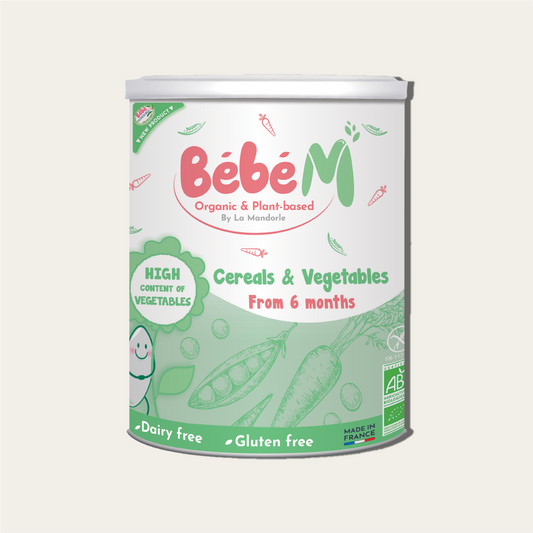Choosing the right baby formula is a crucial decision for parents, and with the increasing popularity of veganism and with most vegan formulas being allergen-free, many families are opting for vegan baby formulas. Here, we'll be providing a little guide to vegan baby formulas, exploring the reasons why some parents choose these formulas and highlighting their benefits, ingredients and nutritional value. This article is only for general information purposes, please speak to a medical professional to understand what's best for you and your baby.
Sometimes breastfeeding isn't possible, it is perfectly acceptable to feed your baby with dairy milk formula. Rest assured, even if you choose this option, you can still raise your little one as a vegan once they hit the six-month mark. Remember, it's all about finding the best option for your baby while staying true to your values.
Currently, there is only one completely vegan baby formula available in the UK.
1. Understanding the Choice of Vegan Baby Formulas:
a. Ethical Considerations: Many parents choose a vegan lifestyle for ethical reasons, aiming to reduce animal exploitation and promote cruelty-free alternatives. Opting for vegan baby formulas allows them to extend these principles to their child's diet right from the start.
b. Environmental Consciousness: Some parents choose a vegan lifestyle to minimise their carbon footprint and contribute to environmental sustainability. Vegan baby formulas, which do not rely on animal agriculture, align with their commitment to reducing environmental impact.
c. Allergies and Sensitivities: Vegan baby formulas can be a suitable option for infants with allergies or sensitivities to dairy products. By eliminating cow's milk and other animal-derived ingredients, these formulas provide an alternative for babies who cannot tolerate traditional dairy-based formulas.
d. Cultural or Religious Beliefs: In certain cultures or religious practices, abstaining from animal products is a deeply ingrained tradition. Vegan baby formulas offer a way for parents to follow these beliefs while ensuring their child's nutritional needs are met.
2. Key Considerations When Choosing a Vegan Baby Formula:
a. Ingredients: Vegan baby formulas are typically free from animal-derived ingredients such as cow's milk, whey, and lactose. Instead, they utilise plant-based alternatives like soy, almond, rice, or oat milk. It's essential to review the ingredient list for potential allergens or added sugars. Soy-free formulas may appear to be vegan, however they often include Vitamin D3 derived from sheep's wool, so it's something to look out for.
It is imperative to note that infants who were born prematurely, have low birth weights, kidney problems, or allergies should avoid soy formula. Therefore, it is crucial to use dairy-free infant formula only under medical supervision.
b. Nutritional Profile: A high-quality vegan baby formula should provide the essential nutrients necessary for healthy growth and development. Look for formulas fortified with vitamins B12, D, and calcium, as these nutrients may be lacking in a vegan diet. Protein content and fatty acid profiles including Omega-3 and Omega-6 are also crucial for your little one's development.
c. Safety and Regulations: When choosing a vegan baby formula, ensure it complies with safety standards and regulations set by the relevant authorities, such as the UK Food Standards Agency (FSA) or the European Food Safety Authority (EFSA). Look for certifications like the Soil Association organic certification for added reassurance.
Top Vegan Baby Formula in the UK:
1. Bébé M: Follow-On Formula and Cereals with Protein Supplement
- Key Features: Made from organic hydrolysed rice proteins, fortified with essential vitamins and minerals, providing a balanced nutritional profile closely resembling breast milk.
- Benefits: Suitable for infants with lactose intolerance or cow's milk protein allergy, offers easy digestion and promotes healthy development.
- Key ingredients: cold-pressed virgin oils and Vitamin D3 from Icelandic Lichen (a type of algae)
- Certification: EU organic, ADFIAG gluten-free certification.
As always, remember to consult with a healthcare professional or a registered dietitian before introducing a food into your baby's diet. Breast milk is best.
